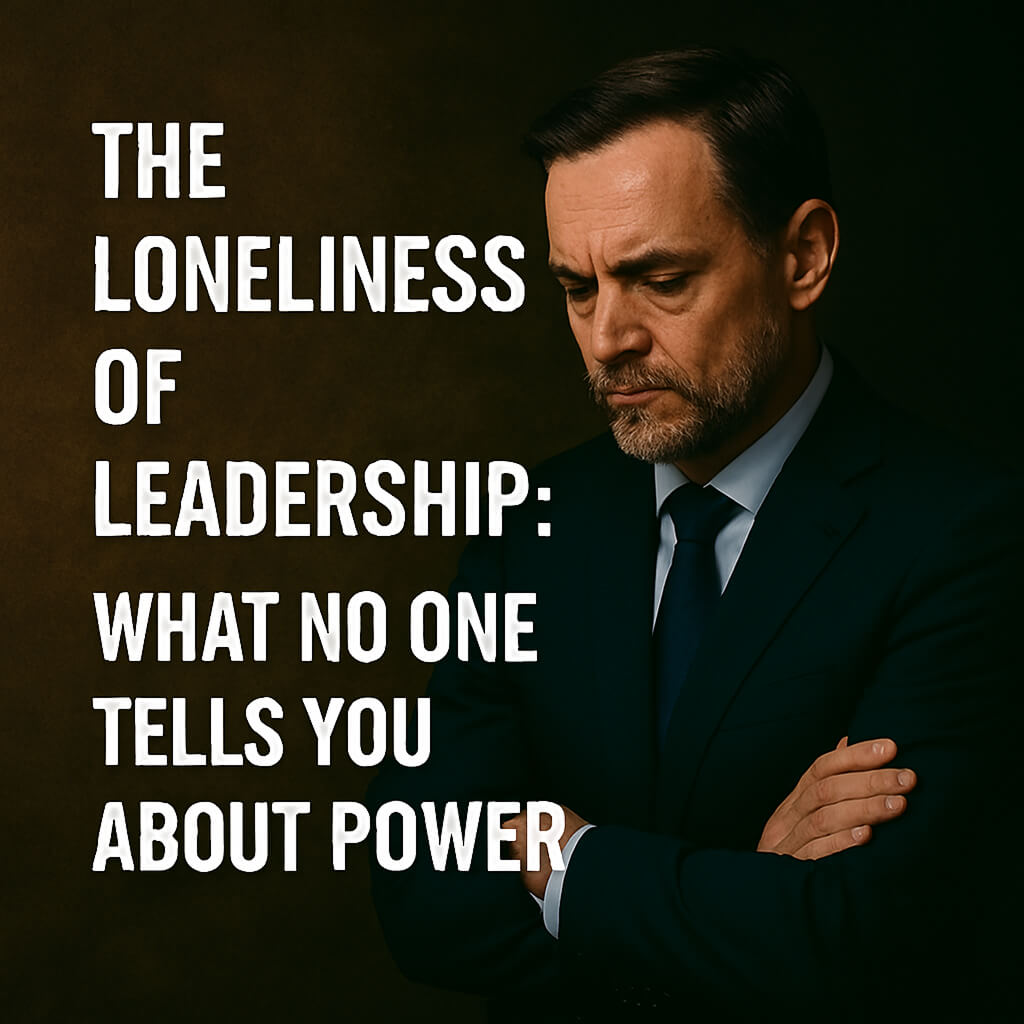Many people think power is exhilarating.
They imagine the CEO’s office as a place of influence, certainty, and control.
A corner office. A powerful title. A sense of having “arrived.”
But I’ve been in that room, many times – coaching the person in the chair.
And I’ll tell you a truth we rarely speak out loud:
Leadership can be excruciatingly lonely.
Not because the person is broken.
But because the system they sit in wasn’t built to hold their humanity.
The Hidden Cost of Power
We live in a world obsessed with leaders.
We analyze their strategies. Quote their mantras.
Celebrate their confidence as if it were invincibility.
But behind closed doors?
I see something different.
CEOs making existential decisions without a single safe space to think.
Boardrooms filled with pressure, but no empathy.
Brilliant, high-performing leaders who doubt themselves deeply, but can’t show it, because even a flicker of uncertainty is seen as weakness.
This is the hidden tax of power.
And if we don’t talk about it,
we’ll keep producing leaders who are brilliant on the outside – but quietly breaking on the inside.
A Conversation I’ll Never Forget
A global CEO once walked into our first session.
He shook my hand, smiled – a little too quickly, and said:
“I have 70,000 people looking to me for certainty.
And I haven’t felt certain in two years.”
He wasn’t failing.
His business was thriving.
But he hadn’t slept properly in months.
He hadn’t told his spouse how anxious he felt.
He hadn’t had a single conversation where he wasn’t the one holding it all together.
This isn’t rare.
This is common.
But it’s hidden under polished language, high performance, and power poses.
Why It Happens
The higher you rise,
the fewer people will tell you the truth.
The more you’re rewarded for decisiveness,
and the less space there is to be real.
Leadership glorifies strength.
But rarely makes room for vulnerability.
So leaders, especially at the top, begin to split:
Outwardly certain. Inwardly isolated.
They carry the burden of being the answer,
while wrestling privately with questions no one knows they’re asking.
This isn’t just emotional.
It’s neurological.
Under chronic pressure and image management, the brain begins to shut down systems essential to empathy, trust, and creativity.
What It Costs
When leaders disconnect from themselves,
they start to disconnect from the people they lead.
Cultures turn cold.
Teams burn out.
Innovation slows, not because of a lack of talent,
but because fear took the place where trust should have been.
The loneliness of leadership isn’t just a personal toll.
It becomes an organizational disease.
What We Must Change
We don’t need our leaders to be superheroes.
We need them to be whole.
That begins with giving them permission to be human.
To ask not only: “How are your numbers?”
But also: “How are you —- really?”
We need to design spaces not just for performance,
but for reflection.
Not just for execution,
but for soul-anchoring.
Coaching isn’t a perk.
It’s emotional infrastructure.
Done well, it allows powerful people to hold power with integrity, without losing themselves.
A Call to Conscious Leadership
So the next time you see someone in power,
don’t assume they’re invincible.
Assume they’re carrying more than you know.
Assume they need space to be honest, not just impressive.
Because the real work of leadership isn’t about appearing strong.
It’s about staying whole when everyone expects you to be unbreakable.
The leaders who will shape our future?
They won’t be the ones who hide their humanity. They’ll be the ones who lead with it.

